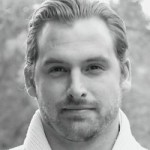 I was greatly edified by having the opportunity to interview Dustin DiPerna, who is a gifted spiritual teacher and noted author of three important new books on religion and spirituality. After receiving a masters degree in religion from Harvard University, he spent a decade working with spiritual philosopher Ken Wilber in a grand effort to synthesize integral theory and the world’s great wisdom traditions. Dustin currently practices in the Buddhist spiritual lineages of Mahamudra and Dzogchen—but has recently come into contact with the Urantia Revelation, mainly through my own outreach efforts.
I was greatly edified by having the opportunity to interview Dustin DiPerna, who is a gifted spiritual teacher and noted author of three important new books on religion and spirituality. After receiving a masters degree in religion from Harvard University, he spent a decade working with spiritual philosopher Ken Wilber in a grand effort to synthesize integral theory and the world’s great wisdom traditions. Dustin currently practices in the Buddhist spiritual lineages of Mahamudra and Dzogchen—but has recently come into contact with the Urantia Revelation, mainly through my own outreach efforts.
For those new to it, integral theory begins with the idea that there are four fundamentally different possible perspectives on any given experience: in short, the (1) interior or (2) exterior domains of either the (3) individual or (4) collective dimensions of any “occasion.” In other words, any phenomenon we encounter has an inside and an outside, and can be either plural or singular. An integral thinker always takes into account all of these perspectives on their subject matter, rather than one or a few of them; in addition, integralism has a strong and abiding emphasis on evolution in all of its dimensions. But, there is much more to integral philosophy—an entire new world of theory and practice. You can learn much more about integral theory at this link.
Much like the Urantia Book, integral theory sits at the point of convergence of the cutting edge of science, philosophy, and religion. In fact, this quote from 103:6 in the UB almost sounds like a passage out of the writings of Ken Wilber:
“When man approaches the study and examination of his universe from the outside, he brings into being the various physical sciences; when he approaches the research of himself and the universe from the inside, he gives origin to theology and metaphysics . . . A logical and consistent philosophic concept of the universe cannot be built up on the postulations of either materialism or spiritism, for both of these systems of thinking, when universally applied, are compelled to view the cosmos in distortion, the former contacting with a universe turned inside out, the latter realizing the nature of a universe turned outside in. Never, then, can either science or religion, in and of themselves, standing alone, hope to gain an adequate understanding of universal truths and relationships without the guidance of human philosophy and the illumination of divine revelation.”
In essence, the integral worldview arose from extensive cross-cultural research that has sifted through the entirety of the many partial truths of the world’s great wisdom traditions, cultural worldviews, and knowledge disciplines—all due to the efforts of Ken Wilber and his many prominent followers, among whom is Dustin. Consider also the fact that the Urantia Revelation arose from a comprehensive survey by its celestial authors of previous human thought in all disciplines.
That said, please enjoy this interview with a bright light in the future of our understand of the unfolding of human consciousness through devotion to integrative theory and integrally informed spiritual practice.
